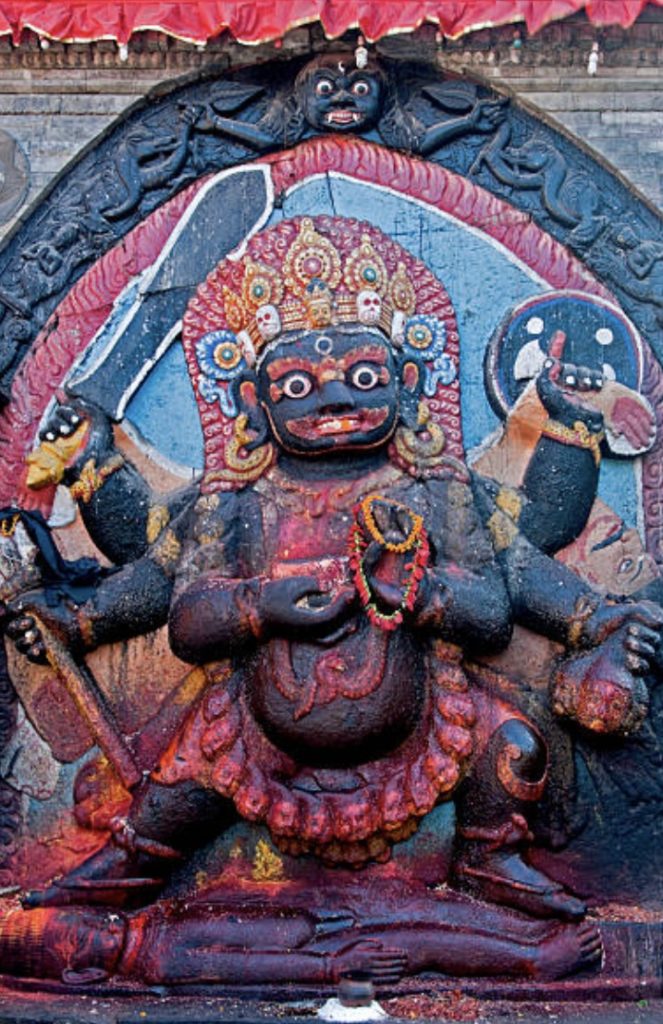Lord Shiva’s Death in Mythology
Lord Shiva who is the destroyer, the one who is Adi yogi, who is considered to be immortal…..have even died once……No, never lord shiva died. Kalantaka is the conqueror of time and death. He emerged on his own as he is swayambhu.

नमस्ते अस्तु भगवन विश्र्वेश्र्वराय
महादेवाय त्र्यम्बकाय त्रिपुरान्तकाय
त्रिकालाग्निकालाय कालाग्निरुद्राय
नीलकण्ठाय मृत्युंजयाय सर्वेश्र्वराय सदाशिवाय
श्रीमन् महादेवाय नमः
Namaste Astu Bhagavan
Vishveshvaraaya Mahaadevaaya
Trayambakaaya Tripurantakaaya
Trikaalaagni – Kaalaaya
Kaalaagni – Rudraaya Nilakantaaya Mrityunjayaaya
Sarveshvaraaya Sadaashivaaya
Sriman Mahadevaaya Namah.
Meaning – Oh Lord, salutations to you, Oh Lord of the Universe, Greatest of them all!
He who has three eyes (eye of omniscience), he who gives enlightenment which is beyond three (Astral, Physical & Causal) worlds, He who like fire devours all three times (Past, Present, Future) within himself, Like Time, he who ends everything, like the time he who disciplines the world into order, He whose body is vast ( blue like the sky, oceans), He who has conquered Yama, the Lord of Death/ Time.

Lord Shiva is also known as Kalantaka the one who conquered death and time sometimes he is also personified as lord Yama himself. Lord Shiva as kalantaka is depicted in the tale which comes from the Thirukkadavoor shrine which is dedicated to Kalantaka. The sage Mrikandu prayed to Shiva at Vilvavanam for a son. Shiva offered him a choice: a virtuous son who would live 16 years, or 100 long-lived, foolish sons. Mrikandu chose the former and accordingly had a son, whom he named Markandeya. As Markandeya neared the end of his fifteenth year, the god Brahma taught him a mantra named Mahamrityunjaya Mantra (means “the great death-conquering” mantra- Sanskrit) that conquered death and blessed him with long life.
ॐ त्र्यम्बकं यजामहे
सुगन्धिं पुष्टिवर्धनम् ।
उर्वारुकमिव बन्धनान्
मृत्योर्मुक्षीय मामृतात् ॥
Om Try-Ambakam Yajaamahe
Sugandhim Pusstti-Vardhanam
Urvaarukam-Iva Bandhanaan
M-Mukssiiya Maa-[A]mrtaat ||
Meaning:
1: Om, We Worship the Tryambaka (the Three-Eyed One),
2: Who is Fragrant (as the Spiritual Essence), Increasing the Nourishment (of our Spiritual Core);
3: From these many Bondages (of Samsara) similar to Cucumbers (tied to their Creepers),
4: May I be Liberated from Death (Attachment to Perishable Things), So that I am not separated from the perception of Immortality (Immortal Essence pervading everywhere).
As per Brahma’s advice, Markandeya prayed to Shiva, worshipping the linga (Shiva’s an iconic symbol) south of Vilvavanam, later identified with the present Thirukkadavoor. The gods pleaded with Shiva to extend Markandeya’s life and Shiva consented.
As per his destiny, the messengers of Yama came to take away Markandeya’s soul, but failed to approach him as he ceaselessly repeated Shiva’s name. Yama came himself to take Markandeya’s soul and told Markandeya to stop his worship and come with him as per his fate. Markandeya refused, warning Yama that he was committing an offence against Shiva. Yama, however, proclaimed that not even Shiva could stop him. The wrathful Yama assumed a fearsome form and threw his noose to capture Markandeya, who hugged the linga tightly. When the noose touched the linga, Shiva emerged from it in all his wrath and struck Yama with his Trishula and kicked his chest, killing the Lord of Death.

Sages, gods and other beings appeared to praise Shiva, who blessed Markandeya to remain a youth of 16 for seven kalpas (aeons). As no one remained in the world to make beings die, the Earth became burdened by evil beings. The Earth, the gods, and Markandeya invoked Shiva to revive Yama. Once again, Shiva touched Yama with his foot, bringing him back to life. A sequel from Thiruvanmiyur to this tale narrates how Shiva resurrected Yama at the request of the gods and Yama worshipped Shiva at Thiruvanmiyur to atone for his sin.
This article is written by Tanishqua Uniyal
Linkedin profile : Tanishqua





